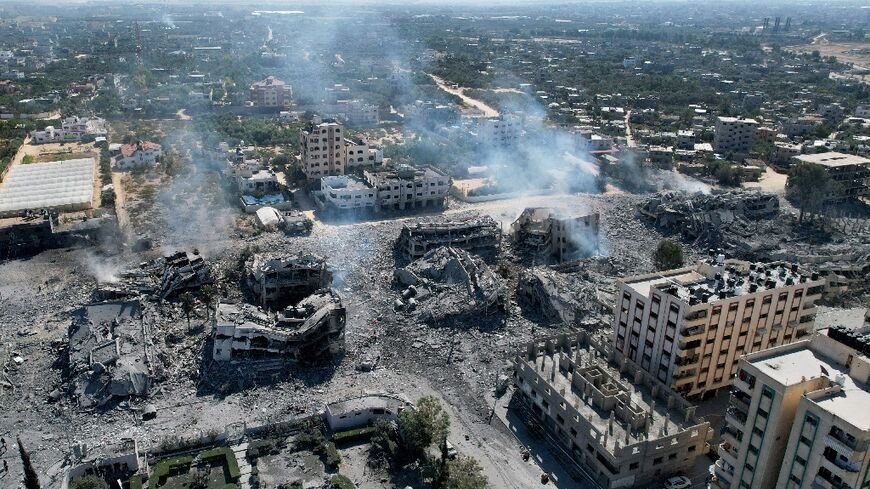Five UN agencies have urged the world “to do more for Gaza”, as the enclave had already been in a desperate humanitarian situation before the ongoing Israeli aggression.
The statement was issued by the UN Development Programme (UNDP), the UN Population Fund (UNFPA), the UN Children’s Fund (UNICEF), the World Food Programme (WFP) and the World Health Organization (WHO).
A humanitarian convoy entered Gaza yesterday via the Rafah border crossing with Egypt – the first since the Israeli aggression on the territory started two weeks ago.
The 20 trucks carried lifesaving items from the UN and the Egyptian Red Crescent, including tins of tuna and tomato paste, pasta, drinking water and medical supplies. Hundreds more trucks are awaiting at the border.
This “first, but limited shipment” will provide “an urgently needed lifeline to some of the hundreds of thousands of civilians, mostly women and children, who have been cut off from water, food, medicine, fuel and other essentials,” the UN agencies said, “but it is only a small beginning and far from enough.”
“Pre-positioned humanitarian supplies have already been depleted. Vulnerable people are at greatest risk and children are dying at an alarming rate and being denied their right to protection, food, water and health care,” they said.
The UN agencies called for a humanitarian ceasefire, along with immediate, unrestricted humanitarian access throughout Gaza to allow aid workers to reach civilians in need, save lives and prevent further human suffering.
“Flows of humanitarian aid must be at scale and sustained, and allow all Gazans to preserve their dignity,” the agencies stressed.
They appealed for safe and sustained access to water, food, health – including sexual and reproductive health – as well as fuel, and for the protection of civilians and civilian infrastructure, including health facilities.
“We call for the protection of humanitarian workers in Gaza who are risking their lives in the service of others,” they added. “And we call for the utmost respect of international humanitarian law by all parties.”
Source: WAFA



